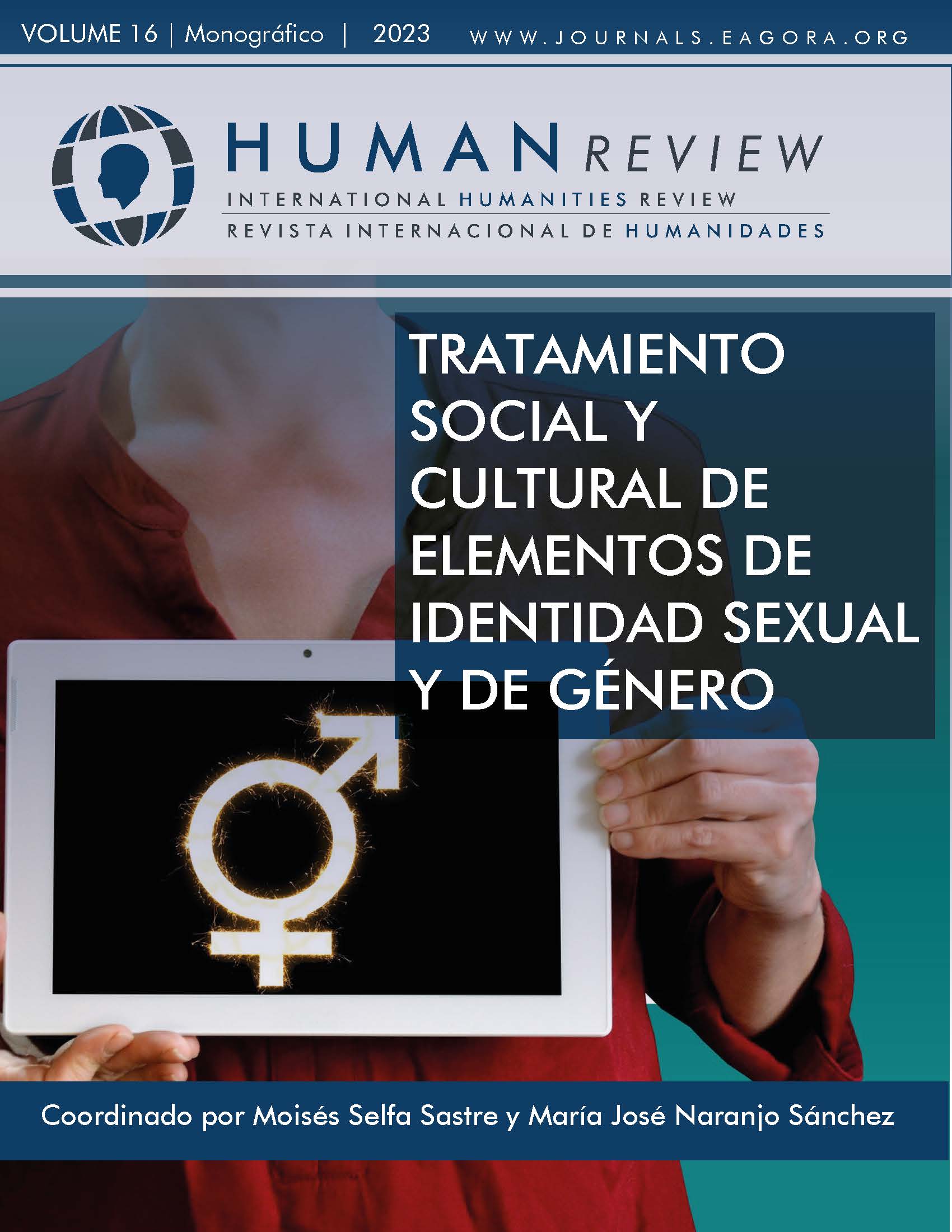Unexplained tales: The Little Red Riding Hood and the Strong Riding Hood
Keywords:
Gender Stereotypes, New Masculinities, Narrative Structures, Female Characters, Children’s LiteratureAbstract
The aim of this article is to carry out a brief but exhaustive study of Perrault’s story of Little Red Riding Hood and compare it with one of his modern rewritings, the version of Vivim del Cuentu. The aim is to find differences in the narrative structure, the text, the illustrations and the female characters. In short, to see the existing connections between the traditional tale and its current rewriting. The conclusions will indicate that the treatment of the characters has evolved notably, changing the narrative structure to adapt it to a more plural, less sexist and more inclusive education.
References
Amezcua, M. (2015, septiembre, 24). Síntesis CAI (clasificar-analizar-interpretar). Gomeres. http://www.fundacionindex.com/gomeres/?p=108
Arias-Cortez, A. C. (2021). Análisis gráfico de las portadas de la última década de un cuento clásico: caso caperucita roja (Master›s thesis). file:///C:/Users/415121/Downloads/Arias%20Cortez,%20Carolina%20(1).pdf
Botines, M. C. una aproximación a las estructuras narrativas. 207-RICERCHE PEDAGOGICHE-APRILE-GIUGNO 2018, 37. https://www.edizionianicia.it/
Canals-Botines, M. (2020). Teaching Narrative Structures to Students majoring in Pre-School and Primary Education. Studi sulla Formazione/Open Journal of Education, 23(1), 175-186. https://doi.org/10.13128/ssf-11218
Costa, J. (2003). Diseñar para los ojos (Vol. 1). Universidad De Medellin.
Cromer, S., Turín, A., Brugeilles, C., Cromer, I., & Bosnia, N. (1998). ¿Qué modelos para las niñas?: una investigación sobre los libros ilustrados.
Dallari, M. (2012). Testi in testa. Parole e immagini per educare conoscenze e competenze narrative. Edizioni Erickson.
de la Fuente, L., & Morales, L. S. (2015). Proyección de la investigación en la comunidad. https://repositoriodigital.uns.edu.ar/bitstream/handle/
Donner, R (Director). (1978). Superman [Film]. Dovemead, Film Export A.G, International Film Productions.
González Marín, S. (2006). El lobo y los siete cabritillos’y’Caperucita Roja’: historia de una relación. Ocnos: revista de estudios sobre lectura. https://www.redalyc.org/pdf/2591/259120386009.pdf
Heller, S. (2007). Is illustration a big enough profession. Varoom Magazine, September, 4.
Kohan, S.A. Escribir para niños. Todas las claves para escribir lo que los niños quieren leer, Barcelona, Alba, 2003, pp. 92.
Lavandier, Y. (2003). La dramaturgia. Los mecanismos del relato: cine, teatro, ópera, radio, televisión, cómic. Madrid: Ediciones Internacionales Universitarias.
Lepri, C., & Canals Botines, M. (2018). Lionni’s little blue and little yellow: the joy of the encounter. Revista Internacional de Culturas y Literaturas, 21, 164-173. https://idus.us.es/bitstream/handle/11441/86696/4742-16605-1-PB.pdf?sequence=1
López, L. (2011). Lecturas y reescrituras de un cuento clásico: Caperucita Roja.
López, D. F. M. (2018, February). Cuatro versiones de” Caperucita roja”: entre la moral, la pedagogía, y la subversión de valores. In V Congreso Internacional de Letras. http://2012.cil.filo.uba.ar/sites/2012.cil.filo.uba.ar/files/
Macià Viles, J. (2014). Models estructurals per a l’escriptura de guions de curtmetratge. http://diposit.ub.edu/dspace/bitstream/2445/59563/1/JMV_TESI.pdf
Murillo-Chinchilla, V. (2015). La ilustración de los cuentos de Perrault: tantas Caperucitas como lobos. https://repositorio.una.ac.cr/bitstream/handle/11056/19561/
Pérez Conde, C. (2020). Caperucita Roja:: la simbología del cuento original y de las adaptaciones actuales. https://uvadoc.uva.es/bitstream/handle/10324/48233/
Perrault, C. (2012). Caperucita roja. Nordica.
Pisanty, V. (1995). Cómo se lee un cuento popular. Paidós Ibérica.
Trepanier-Street, M. L., & Romatowski, J. A. (1999). The influence of children’s literature on gender role perceptions: A reexamination. Early Childhood Education Journal, 26(3), 155-159. https://link.springer.com/content/pdf/10.1023/A:1022977317864.pdf
Truby, J. (2008). The anatomy of story: 22 steps to becoming a master storyteller. Farrar, Straus and Giroux.
Vivim del Cuentu. (2013). La caputxeta forçuda. Baula.

